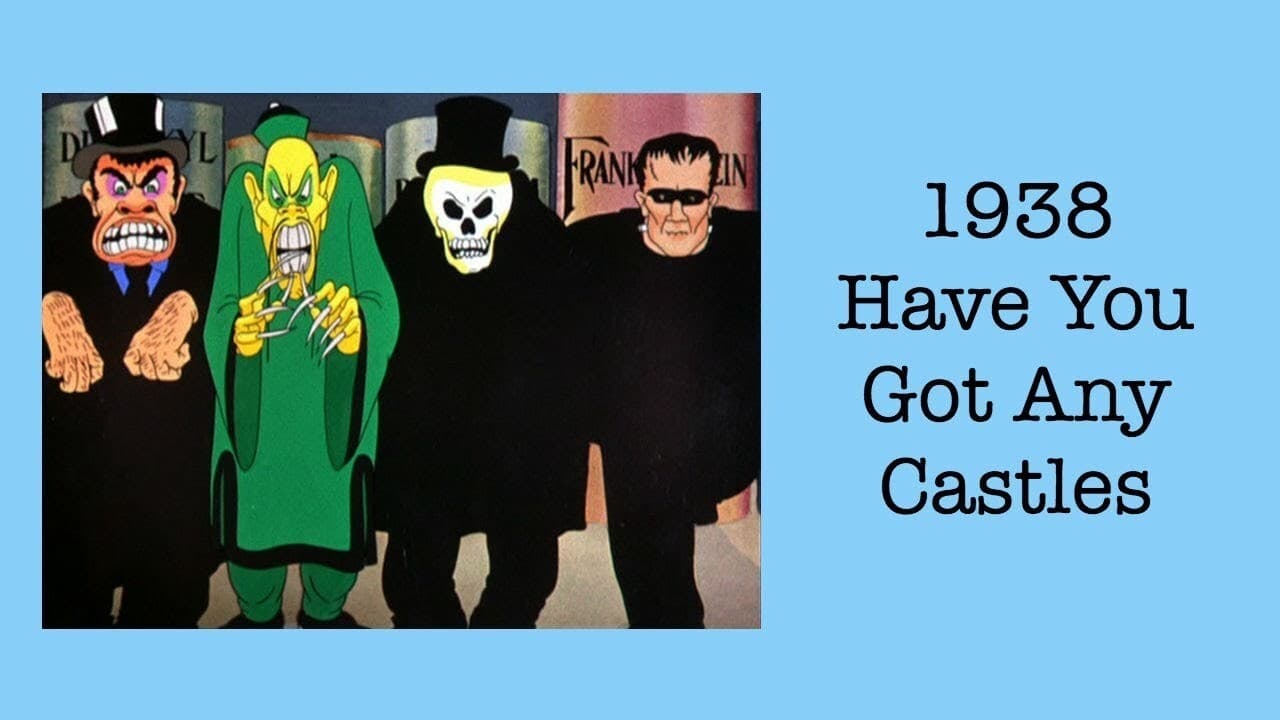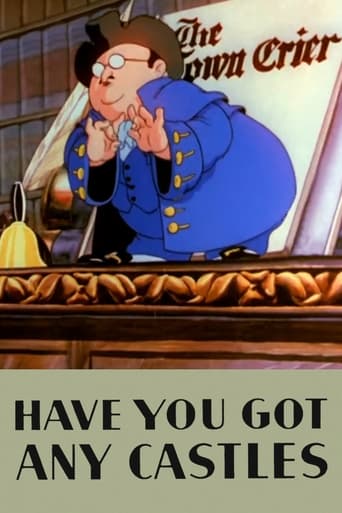

. . . Warner Bros. live-action feature films are embedded in this seven-minute-long animated short, HAVE YOU GOT ANY CASTLES? Despite this fact, not ALL of the books OR characters referenced here called producer Jack L. Warner "Daddy." For instance, that mendacious melodrama GONE WITH THE WIND is famously MGM property, and the House of Horror--Universal Studios--churned out the early versions of FU MANCHU and FRANKENSTEIN. Every Hollywood film outfit probably cranked away at various editions of Louisa May Alcott's LITTLE WOMEN and LITTLE MEN, and Alexandre Dumas' THE THREE MUSKATEERS, since they all hailed from the Public Domain. On the other hand, BULLDOG "Drumming" DRUMMOND, THE THIN MAN, THE GOOD EARTH, THE LIFE OF LOUIS PASTEUR, TOPPER, MUTINY ON THE BOUNTY, and THE 39 STEPS were all more recent literary efforts likely to be the property of one specific film studio (most often Warner here, of course). But I'm not sure that Shirley Temple ever belted out a "HEIDI Ho!," or that the THIN MAN ever filled out his rump from a White House Cookbook!
... View MoreI have always loved this short, ever since I was a little girl. I had a copy of it on VHS along with a few others, but this one was always my favorite. I was very disenhearted when my father donated the VHS that this short was on to the library, as he felt then 11 year old me was "too old" for cartoons. After many years of having not seen it, however, I was tickled when I found it in a DVD set. I enjoyed it as much as I did then, if not more so. I would recommend "Have You Got Any Castles" to anyone. It is cleverly put together and well done, and the caricatures are spot on. The animation is colourful and very well done, with more creativity put into this than many modern animated features today.
... View MoreThe "town crier" inside a warm house on a snowy winter night dazzles us with his vocabulary, introducing us to various literature characters who come to life in this home's big library.Most of the characters were people seen on screen in the mid '30s, actors like Paul Muni (The Story of Louis Pasteur) or Williams Powell (Nick Charles of The Thin Man fame) or, well.....there are so many I'm not going to list them all. It starts with four horror stories: Dr. Jekyl and Mr. Hyde, Fu Manchu, The Phantom of the Opera and Frankenstein and runs the game to Topper, the Invisible Man, The Good Earth, The 39 Steps, on and on and on. We see dancers and singers like Bill Robinson and Cab Calloway represent some of the titles. With all the jokes and sight gags poured into this, you get a lot of silly, stupid, clever and funny, some of it depending on how familiar you are with the characters, and how much you enjoy puns.My personal opinion would involve three "c words" - clever, cute and colorful. Having seen almost all of those classic films, I thought this was a lot of fun to watch.
... View MoreA previous reviewer wrote "The reference to Ferber's "So Big" makes fun of a vain actress. (I'm not positive about that caricature. Katharine Hepburn perhaps? She had been box office poison for some time.)"That was Greta Garbo. The urban legend about the size of her feet was current at the time, and several of these shorts (e.g., Hollywood Steps Out) reference that.The part about these 'topical' shorts that surprises me - my nine year old son, who has NO idea who any of these people are, watches these with almost as much enjoyment as the more timeless episodes. Some of the bits - Bill 'Bojangles' Robinson tap dancing up The 39 Steps, or the hideously dated images in the Cab Calloway sequence - which may strike him as offensive in years to come, just blend in with the rest for him right now.
... View More